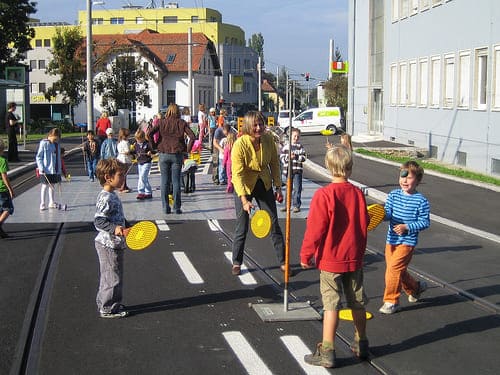Mobility Week takes place every year from the 16th to the 22nd of September. This European initiative encourages cities to present and promote sustainable transport measures and to invite the population to try alternatives to car use.
The European Commission has set itself two ambitious objectives for urban mobility:
A major challenge but nevertheless, since its introduction in 2002, the impact has continued to grow, both in Europe and worldwide. In 2018, the campaign broke its record in regards to participation; 2,792 cities from 54 countries organized activities during the week.

Source: Car-Free Day in Australia / Blog Mobility Management Australia
The week finishes with Car-Free Day, where participating cities book one or more spaces entirely for pedestrians, cyclists and public transit for a full day. Last year, 1153 cities celebrated Car-Free Day.
The goal for companies is quite clear: create new sustainable mobility in the context of employees' home-to-work commute. This vision can be part of your mobility plan, not just limited to the Mobility Week! There are a multiple of initiatives that can be implemented by companies:
In Normandy, for example, at the François Baclesse centre in Caen, workers who ride their electric bicycles to work are even paid 25 cents per kilometre. Will the bicycle mileage allowance soon be mandatory for companies?
The Mobility Week is a great opportunity to get out of my comfort zone and test new ways of getting around to work. I would like to take this opportunity to raise awareness among my colleagues, draw their attention to less well-known modes of transportation and exchange our experiences in the field of mobility.

In terms of personal initiative, I decided to test the car-free week! This is a real challenge for me because I live on the outskirts of Brussels, in an area where the multimodal mobility offer is less developed than in the city center.